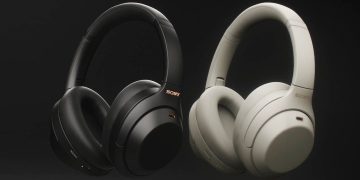This week brought some exciting news for tech enthusiasts and gamers alike, as the team behind the PlayStation 3 emulator, RPCS3, announced they have now secured stable and native support for the Arm64 architecture across a trio of platforms: Windows, macOS, and Linux. What makes this remarkable is that this level of support extends to the Raspberry Pi 5, showcasing a new frontier for what this modest device can accomplish. It’s quite the leap, considering the Raspberry Pi 5 has previously been known to tackle GameCube and Wii emulation—with varying success. But now, with a bit of tinkering and the right settings, even PS3 games are within its reach on current entry-level Arm hardware.
In one of those “seeing is believing” moments, a YouTube video illustrates this breakthrough, detailing how PS3 emulation on the Raspberry Pi 5 tests the boundaries of what’s possible. Due to necessary settings tweaks, it echoes the output resolution of a PlayStation Portable (PSP), scaling down to 273p from the PS3’s native 720p. Despite this reduction, it is this very tactic that enables games like God of War (I and II, originally PS2 titles), Catherine, and Naruto: Ultimate Ninja Storm to become playable. While 2D games face fewer hurdles, even being able to pull off smooth framerates in 3D PS3 titles is surprisingly impressive for what this tiny device can handle.
Meanwhile, on the macOS front, native Arm architecture support has delivered significant performance boosts for PS3 game emulation on Apple Silicon. Instead of relying on x86 emulation, running these games natively has led to framerate improvements ranging from 50% to a staggering 100%. This shift transforms what was once a pipe dream into reality, offering gamers a genuinely efficient PS3 emulation experience on Arm-powered devices.
Unlike the Raspberry Pi’s task of mimicking a PSP, testing on Apple Silicon reveals the kind of performance you’d expect from heavyweight PS3 titles, such as God of War III and Skate 3. These games are notably more challenging to emulate than their PS2-to-PS3 counterparts, yet they remain well within playable territory on Arm architecture—as long as the hardware is robust enough to handle them.
So whether you’re nudging the limits with a Raspberry Pi or enjoying smooth gameplay on Apple Silicon, it’s clear that Arm64 architecture is opening up new horizons for PS3 emulation fans. This revelation underscores the growing potential of these powerful devices, transforming ambitious dreams into tangible gaming achievements.







![[PS5] Review of Choice of Life: Wild Islands [PS5] Review of Choice of Life: Wild Islands](https://www.nogameover.net/wp-content/uploads/2025/07/PS5-Review-of-Choice-of-Life-Wild-Islands-360x180.jpg)



![[Rewritten title]
PS5 Review: “Cat from Hell” – A Dive into the Cat Simulator](https://www.nogameover.net/wp-content/uploads/2025/07/Rewritten-title-PS5-Review-Cat-from-Hell-–-A-Dive-360x180.jpg)


































